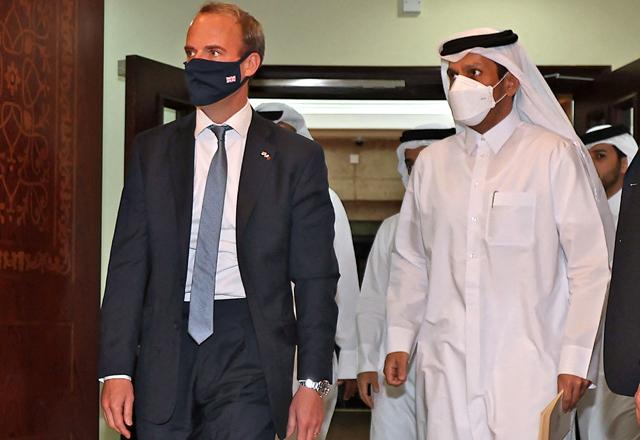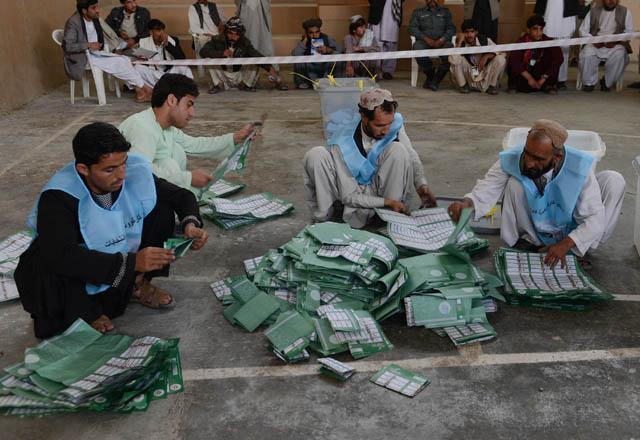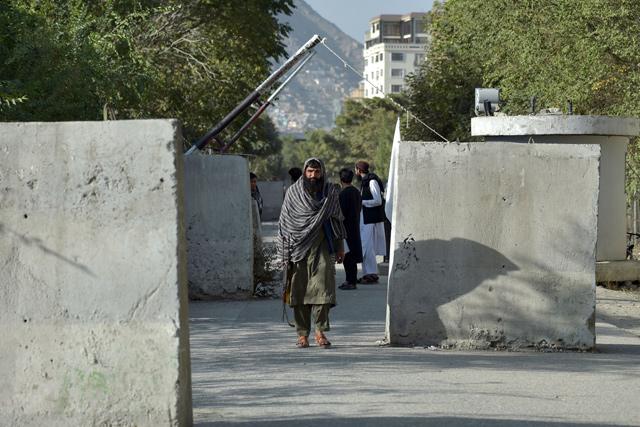You are here
UK government blasted over Afghan exit as hundreds left behind
By AFP - Aug 29,2021 - Last updated at Aug 29,2021
LONDON — The UK government on Sunday faced a torrent of criticism after its hurried withdrawal from Afghanistan ended, leaving hundreds eligible for relocation behind.
Prime Minister Boris Johnson hailed a mission “unlike anything we have seen in our lifetimes” after the UK airlifted over 15,000 people in the last two weeks.
Troops landed back at Brize Norton Airbase in southern England on Sunday after Britain was forced to withdraw following the decision of its ally the United States to end its 20-year presence.
Johnson praised the evacuation efforts in “harrowing conditions” and assured the military that decades of deployment “were not in vain” after the Taliban retook control.
But current and former officials slammed government failings, suggesting many more Afghans could have been rescued.
The Observer left-wing broadsheet cited a whistleblower as saying thousands of e-mails from MPs and charities to the foreign ministry highlighting specific Afghans at risk from the Taliban takeover went unopened.
Foreign Minister Dominic Raab has already been strongly criticised for not immediately leaving a beach holiday when the Taliban took control.
The Observer said it saw evidence that an official e-mail account set up by the Foreign Office to receive such pleas regularly had 5,000 unopened e-mails last week.
It said these included messages from ministers’ offices and the leader of the opposition Labour Party, Keir Starmer.
“They cannot possibly know [how many people have been left behind] because they haven’t even read the e-mails,” the whistleblower was quoted as saying.
The Foreign Office responded that its crisis team worked 24/7 “to triage incoming e-mails and calls”.
Officials have given varying estimates of how many eligible Afghans did not board evacuation flights, the last of which left Saturday, with the head of the UK armed forces General Sir Nick Carter putting this “in the high hundreds”.
The Sunday Times right-wing broadsheet quoted an unnamed minister as saying: “I suspect we could have taken out 800 to 1,000 more people”.
The same minister slammed Raab, claiming he “did nothing” to build ties with third countries from which Afghans might enter the UK.
The Foreign Office acknowledged that Raab had delegated calls to his Afghan counterpart while saying he recently called his Pakistani counterpart.
The damning reports came after The Times reported last week that it found contact details of staff and job applicants left behind at the British embassy compound in Kabul, potentially endangering them.
‘Haphazard and chaotic’
Public opinion has been sharply divided in Britain over a high-profile campaign by an ex-serviceman, Paul or “Pen” Farthing who runs a British animal charity to evacuate his animals and staff from a shelter in Kabul.
Farthing managed to fly out on a privately chartered plane on Saturday with around 150 cats and dogs on board, landing at Heathrow on Sunday morning.
He was hailed as a hero by supporters but opponents questioned the ethics of using official time and military support to evacuate animals as Afghans remained behind.
Tom Tugendhat, a Conservative MP and head of the Foreign Affairs Select Committee, told LBC Radio that an Afghan interpreter who had worked for the UK asked him: “Why is my five-year-old worth less than your dog?”
Richard Dannatt, a former head of the British army, told Times Radio that it “looks odd that we’re giving prominence to a man and a lot of cats and dogs”, while adding he doubted Farthing’s flight prevented any Afghans leaving.
The focus should be on why Britain did not prepare better while knowing the danger faced by former interpreters and other locally hired civilians, Dannatt said.
He called for an inquiry into why the evacuation “happened in such a haphazard and chaotic fashion”.
Raab acknowledged in The Sunday Telegraph that the Afghan situation was a “bitter pill to swallow”.
To deal with the Taliban regime, the UK must build a wider international coalition of regional powers and other United Nations Security Council members, including countries “with whom we have a difficult relationship”, he wrote.
Related Articles
DOHA — Qatar said on Thursday it is working with the Taliban to quickly reopen Kabul's airport, whose closure since the departure of US tro
A bigger-than-expected turnout in Afghanistan’s presidential election and the Taliban’s failure to derail the vote has raised questions about the capacity of the insurgents to tip the country back into chaos as foreign troops head home.
KABUL — The reopening of the passport office in Kabul on Wednesday gave some Afghans who feel threatened under Taliban rule fresh hope they



















